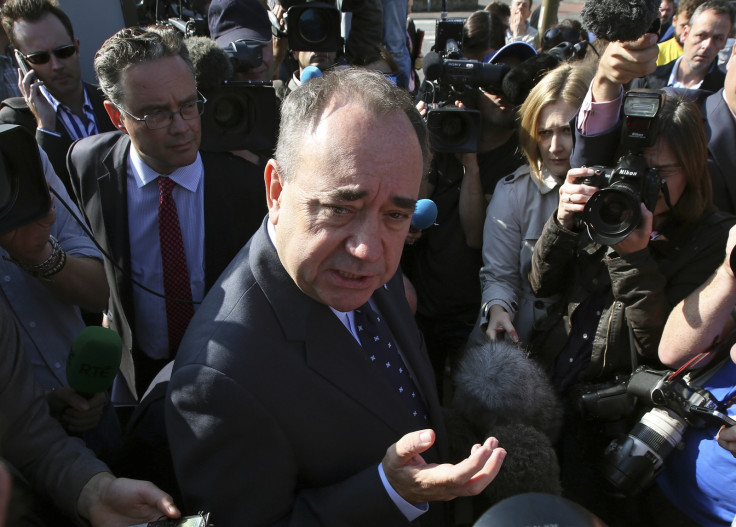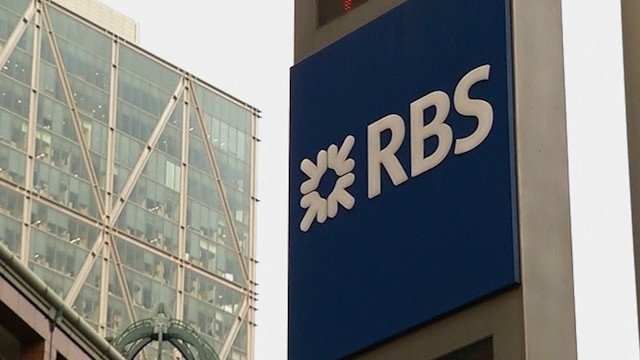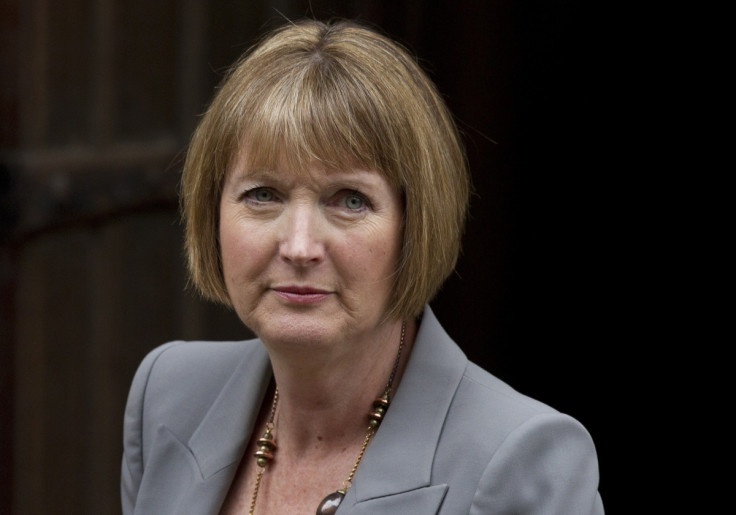Scottish Independence: Alex Salmond Goes on the Offensive as 'No' Campaign Reverts to Negative Type

If David Cameron and Ed Miliband's trips to Scotland was supposed to mark a new, positive and even humble face to the "No" campaign, then someone didn't get the message.
The very next day, the campaign reverted to what Scotland First Minister Alex Salmond branded as "bullying, scaremongering and intimidation", which, he said, has marked the approach of the Westminster "elite" throughout.
And, despite the latest poll suggesting the anti-independence campaign is back in the lead, he said his opponents had even descended to breaking City rules out of panic and a realisation their days were numbered. And he was on the attack.
Specifically, he turned his fire on to the government and the Treasury which, he said, had briefed the BBC on market-sensitive banking information in a blatant breach of the rules.
He said he had demanded an inquiry by the cabinet secretary to discover exactly who had authorised the leak, and said: "There has to be an investigation into exactly what happened. It is a matter of extraordinary gravity."

And in a sideswipe at the BBC that drew cheers from his audience, he added: "I know the BBC will cooperate with the investigation by the cabinet secretary. It is as serious a matter as you can possibly get."
Interestingly, the Sun claims it was they who had the story first, yet Salmond did not mention that, only further raising suspicions he hopes Rupert Murdoch may yet be persuaded to back independence in his Scottish editions, despite the fact that would be in direct contradiction of his London paper's stance.
He also delivered what he clearly believed was a comprehensive rebuttal of the leaked "scare stories" about RBS and Lloyds abandoning Scotland in the event of independence.
He quoted from a letter by RBS' chief executive saying there were no plans to move operations or jobs and that it was merely a technical move, while Lloyds already headquartered in London.
Both moves would be purely brass-plate relocations with no impact on operations or jobs, Salmond insisted.
Whether that is accurate or not, it goes to one of the core issues in the campaign: who do Scottish voters most trust, Salmond or the "Westminster elite/establishment" he constantly treats as a single amorphous blob that has constantly failed Scotland.

He has never used the word "conspiracy", presumably because it carries some pretty negative connotations, but the notion of an English establishment conspiracy including Westminster, Whitehall and the media, determined to deny Scotland its destiny underlies much of his pitch to the Scots.
And with exactly a week to go to the referendum, on 18 September, the "conspiracy" was back focusing on the old issue of the economy, the currency and the effect independence would have on jobs and, according to John Lewis, prices in the shops.
Labour despatched two train coaches full of MPs to Scotland to join Miliband on the campaign trail but even deputy leader Harriet Harman was back to warning about the consequences of independence on jobs and the economy.
As for Salmond, he is determined to present an image of a man standing up for his country against a powerful establishment and confident his country will put their trust in him.
And with the current atmosphere of distrust in politicians and disengagement from the traditional political institutions that runs right across the whole UK, it is a pretty powerful pitch.
© Copyright IBTimes 2025. All rights reserved.






















